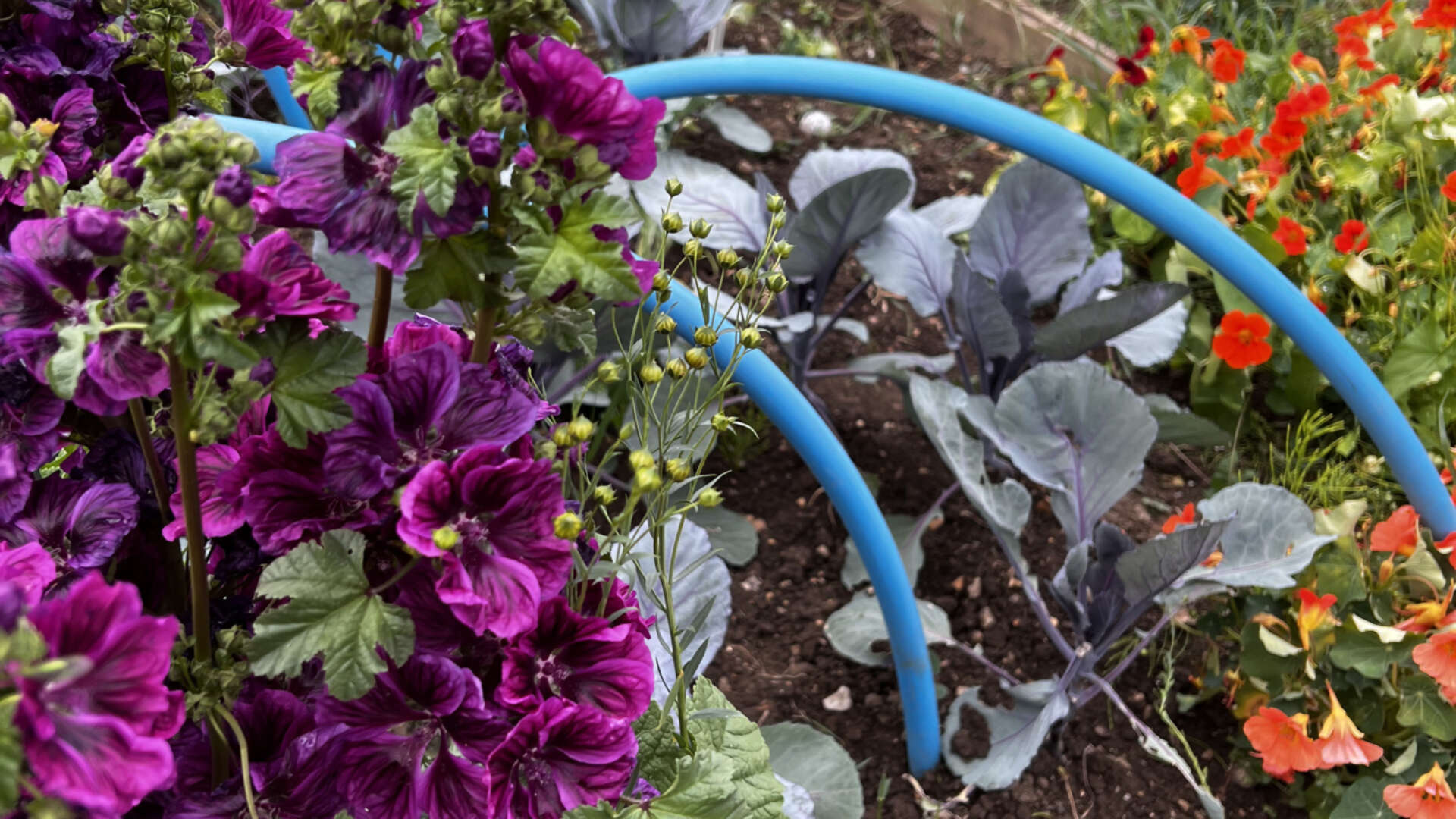Celebrate National Allotments Week

Growing organically means you welcome the challenges of each season. You have created a plot where nature can thrive, where plants and wildlife - birds, bees and a host of diverse creatures - share a healthy habitat which is rich with life and nutrients. And you have the satisfaction of growing your own organic produce, free from toxic chemicals, fresh to the plate.
Garden Organic is here to support you. We offer Growing Advice - from starting with healthy soil, growing your favourite fruit and veg, right through to harvesting and storage. We even have a page dedicated to the first time allotment holder, with advice on how to begin that first weed clearance from the new plot, as well as tips on ongoing weed management.
Have you tried some exotic vegetables? Growing your own sweet potatoes, achocha or lablab beans will give your plot distinction. And have you tried the No Dig technique?
We even help you battle with slugs and snails, and plenty of other pests and diseases.
Growing on an allotment gives you the opportunity to share with neighbours. However, not all growers share your enthusiasm for the organic way. Too often we are asked "How do I deal with a neighbour who sprays and uses chemical weedkillers?" In response we have produced a handy poster The Top 10 Dos and Don'ts of Organic Growing. Maybe you could pin it up nearby for all to read and share? And below are suggested ideas for opening up the conversation on why slug pellets and other poisons are not good for their growing environment.
Wherever you are on your allotment, we wish you happy and fruitful growing.
For a dedicated advisory service, and a full set of organic growing factsheets, why not become a member of Garden Organic? Just £2.75 a month we are here to support you. You could also join the Heritage Seed Library, and access those wonderful heritage vergetable varieties which are no longer available. See here for further information.
Good neighbour
Often organic and non-organic neighbours cultivate land next door to each other in allotment sites. This can be a great opportunity for organic growers to share their expertise. Here are are some key arguments in favour of the organic way:
Chemical weedkillers are toxic. They are often created as a mix of glyphosate and toxic surfactants which attack the plant and can create a residue in the soil. They are skin and eye irritants, and some research has shown them to be potentially carcinogenic. Spraying can travel in the wind, which leaves a residue on neighbouring growth. As well as being poisonous to the weed, glyphosate formulations in the soil can inhibit the root uptake of nutrients – causing a crop to struggle more. For further information see the Glyphosate debate
Pesticides will kill indiscriminately. Although sprays are aimed at aphids or other pests, they also kill other harmless insects. Worse than that, many of these insects are of great use to the grower. Ladybirds and hoverflies, for instance, will not only eat the aphids, but also help bees and butterflies as pollinators. Pesticides can also create a health hazard for birds or frogs.
Slugs ….. ah slugs! Tempting though it is to scatter pellets around the baby lettuce plants, there are other ways to deter slugs and snails. Did you know that the No 1 cause of fatal poisonings in children is from slug pellets which contain metaldehyde. So please don't use them. Check out the National Allotment Society’s own slug and snail advice in their helpful leaflet on Wildlife gardening, and for quick reference see this paragraph in our own growing advice:
- Protection of vulnerable plants is the key. And don't rely on only one method.
- Always renew barriers after rain, and accept that some damage is inevitable.
- The following may help: dig to disrupt both slug and its eggs; encourage natural controls such a beetles, frogs, birds and hedgehogs; frequently inspect your plants and hand pick off (particularly in damp weather and at night); create barriers of dry material which slugs find hard to traverse, such as grit – and renew after rain.
- If you use traps ( ie beer in a container), empty them frequently. To avoid killing ground beetles, which eat the slugs, it is better to put your beer into a saucer with raised edges.
- Use of nemotodes (microscopic organisms, available to buy online) can have some success, but they only work once in a season, and the conditions are very specific for the nemotodes to function.
- Iron phosphate pellets, sold as organic pellets, should only be used when absolutely necessary, and sparingly.
See Slugs and Snails for further information.